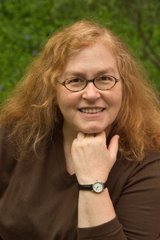
For those of us who love to read, there's the constant need to decide just which books we're going to spend time with. Back in 2005, the Guardian found that more than two in every five people "follows the traditional method of choosing their reading; relying on recommendations from close family and friends."
If you'd like to consider alternative approaches, here are three options.
1. Merlin Mann has a number of questions he asks himself about a nonfiction book; the preferred answer to each would be "no." Some of the questions:
- Does the book’s index seem weak or does it not contain entries for the topic or person whom you most associate with the book’s theme or title?
- Does the book’s body or heading text suffer from careless or illegible typesetting? Does the book look like an unfinished government manual? Should the designer be horse-whipped for choosing a bold display face for body text?
- Have you already found erors and misspelings?
2. In The Little Guide to Your Well-Read Life, Steve Leven says, "To live your well-read life - at any age - it is essential to take your selection of books seriously." He advocates building a List of Candidates; this list is then used to build a Library of Candidates - the ones you actually buy (or borrow).
"Collecting titles and the actual books that complement your interests is essential preparation. Whether it's Beaujolais or business principles, orcas or orchids, seeking out the best books ever written on your subjects holds the keys to your kingdoms. Ask people who ought to know for their recommendations, and about the books that are available. It's really that simple, yet few people pursue their reading choices deliberately, let alone avidly, in this manner."
Leven also talks about "iffy advice from friends." He writes: "Having been let down a few times, I've since learned to ask friends why they like the book so much. If you don't know each other all that well, it's probably best to note their recommendation on your List of Candidates and wait. Perhaps you'll come across another friend who recommends it. ... The International Global Positioning System takes three satellites to fix a position and four satellites to fix it well. We might apply a similar concept to books that friends recommend."
3. Carrie likes to add some randomness into the mix. Over on Marginal Revolution, she writes: "In addition to all the normal ways of picking books, about once a month I go to the Book Nook (used book store) walk down aisles that are of interest to me, close my eyes and walk while running my fingers up and down the books until I stop at one randomly. Then I choose that one or either one to the side. If I've read them all, I go again. Crazy I know, but it's led me to read some great books I never would have picked up otherwise."
However you select your books, remember it's fine to stop reading one if you decide you don't like it!
[photo by jepoirrier / Jean-Etienne Poirrier]

3 comments:
I always thought it would be fun to read every Pulitzer Prize winner for fiction, or maybe every Man Booker Prize or National Book Awards winner. I haven't acted on it, but I still like the idea!
After 6 years of study - where my reading has been dictated by others, and novels have been a rare treat - I have some serious catching up to do.
Our library has shelf units about 3 foot wide, 5 shelves to a unit. When we visit the library (weekly or fortnightly trip) I pick one book from each shelf in a unit, working alphabetically.
I've read some garbage, but I've also found some wonderful authors. I think I've averaged a book every two days since exams (slowed down a bit recently LOL).
I've been blogging my thoughts on each book (bit behind at the moment): http://greyhairedgraduate.blogspot.com/
Cynthia,I know someone who reads quite slowly, so he doesn't get through many books. He selects his books purely from one of the awards lists, I don't remember which.
Personally, I'd be more inclined to want to read the Caldecott Medal winners.
SueBK, I've been following your book commentaries; you're in my RSS reader.
Post a Comment